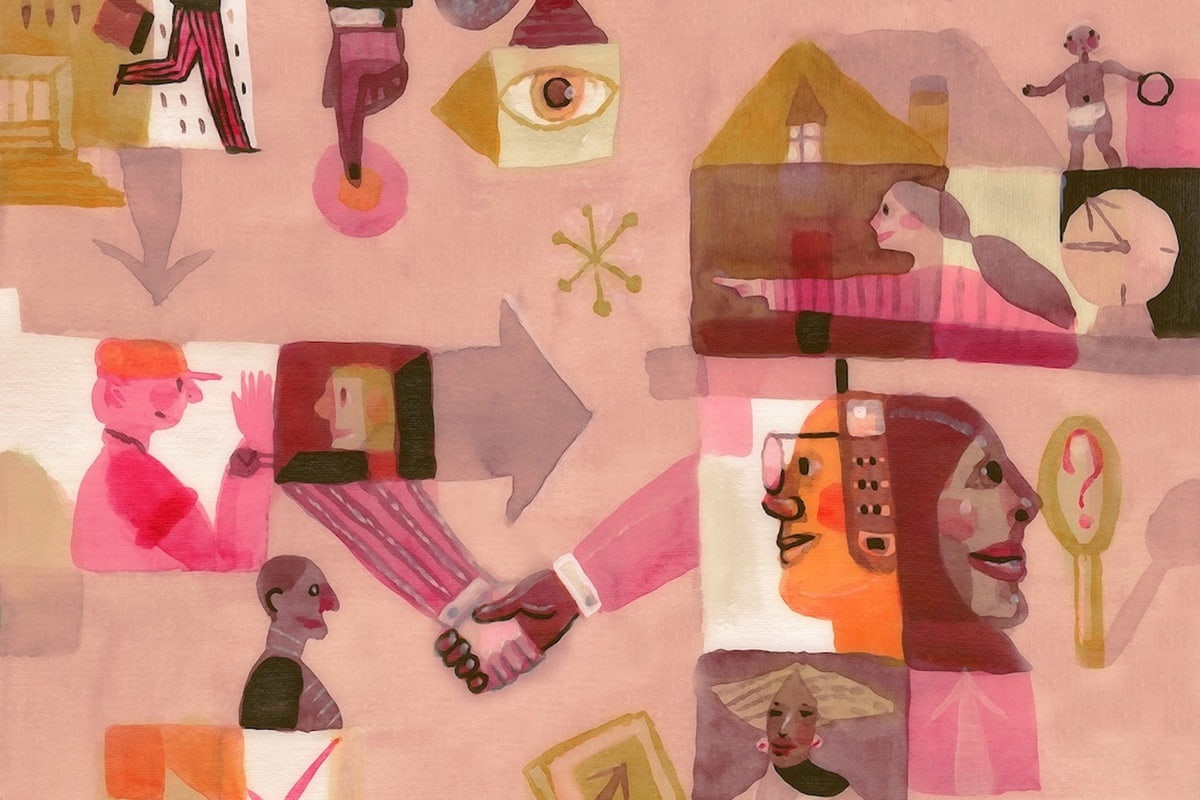Truth be told, kindness is a good prescription for a life well lived. Kind actions and a compassionate attitude bode well for both physically and mental health. We might try to be kinder than we think we are — especially at work. Why? For one, according the Global Happiness Policy Report 2018, the majority of people are miserable at their jobs even if they say they’re happy to have one. Two, we spend over 30% of our lives working. Might as well try to enjoy it, right? Third, when we behave in kind ways, the positivity that arises then spreads to others. It’s just like that old 1970s bumper sticker: kindness is contagious.
For the skeptic out there, here’s a workplace study that was conducted at a Coca Cola Iberia in Madrid, Spain. The researchers randomly assigned over 100 employees into three different groups and the employees weren’t aware of their assignment to the groups or the true purpose of the study. The employees were assigned to be Givers, Receivers, or be in a Control (people who don’t do anything).
The Givers practiced five acts of ordinary kindness a day from a specific list ideas of kind gestures (see below). This was not about flowers, balloons and cake. The Givers could choose when to do the kind acts, and for whom from a list of fellow employees assigned (unbeknownst to them) as Receivers. The Givers did this for four weeks. Examples of kinds activities included:
- Bringing someone a beverage
- Cheering up a coworker who seems to having a bad day
- Speaking up on the behalf of another
- Emailing a thank you note
The people in the Receiver or Control groups were not asked to do anything at all during the course of the study. It was just work as usual for them. All three groups filled out surveys before and after and two months later.
Here’s what the researchers found: Givers and Receivers mutually benefited in well-being in both the short- and long-term. They showed improvements on weekly measures of feelings of competence and autonomy, (acting in alignment with core values). Receivers remained happier a full month after the study and Givers became less depressed and more satisfied with their lives and jobs. They also noticed the changes in workplace. Givers’ prosocial acts inspired others to act: Receivers paid their acts of kindness forward with 278% more prosocial behaviors than Controls. That’s right, just like that ‘ol bumper sticker said so. Surely, this is a prescription for happier workers and workplaces.
Why does this matter? The most common contributors to low job satisfaction and causes for absenteeism include but are not limited to: bullying and harassment, burnout, stress and low morale, stress of childcare and eldercare, depression, disengagement, illness, and not surprisingly, looking for another job. Consider that kindness, a prosocial skill that needs to be practiced in order to grow, is about connecting with other people in genuine ways. Moreover, there is a multiplier effect. Your kind action and the corresponding upswell of positive emotions will spread outward influencing three people like a happy virus. Additionally, it’s likely that each of those three people will positively influence three others in their social circles. A little intention can go a long way. Why don’t you give it a try and see what happens?
Dr. Tara Cousineau’s new book is “The Kindness Cure: How the Science of Compassion Can Heal Your Heart and Your World.” Drawing on research in psychology and neuroscience, this book will help teach you the benefits of practicing kindness. Check it out today!











